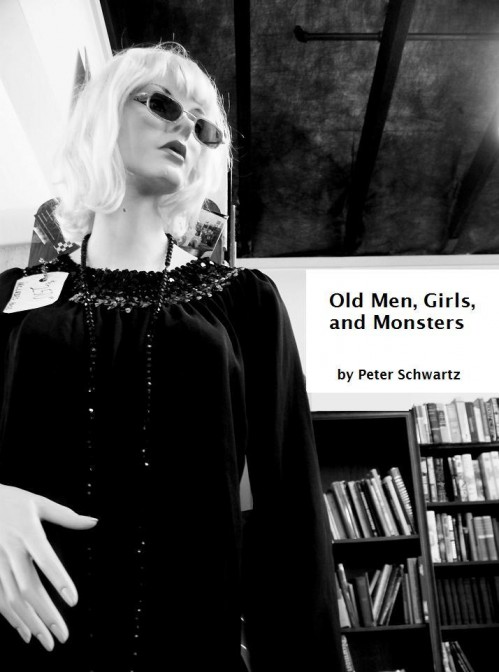Rest in Unrest
It has even been suggested that I spent six years writing my last novel in order to create a demand that cannot be filled. Basic Black With Pearls has had rave reviews and has been bought by William Morrow Company in New York. Success and 60 cents will get me a ride on the subway. No one can find a copy of my novel in the bookstores.
First published age 45.
Did, but did not enjoy, raising rabbits for food.
94 is way bonus years.
All the literary forms were men’s, all the philosophies were men’s philosophies. … I had to translate these forms into the female
Achieved?
Pointed out that gardens might be an answer to God Money (or that fleas do tricks for food).
RIP Helen. To be avant and overshadowed by a spouse. Push back? Harder? But it happens. But let’s pause.
Joshua Cohen on Jakov Lind at Open Letter
 This jumped right off the e-page at me as one of those things that readers of this site would/will LOVE if/when they found/find out about it.
This jumped right off the e-page at me as one of those things that readers of this site would/will LOVE if/when they found/find out about it.
The great Joshua Cohen wrote an introduction to Lind’s Landscape in Concrete, which Open Letter Books re-published last year. On the occasion of the third anniversary of Lind’s passing, also, OLB’s even more recent (ie this January) reissue of Lind’s Ergo, they have made JC’s introduction to Landscape available online. Here is paragraph one.
“Jakov Lind” was a pseudonym for a man without a name. According to the rolls of a host of long-since defunct regimes, “Lind” was once known as Jakov Chaklan, Palestinian Jew (this was back when you could be one of those), and before that he was Jan Gerrit Overbeek, Dutch bargehand, which was the Nazi-era identity of Heinz Landwirth, Viennese. The author of Landscape in Concrete—and also of the stories of Soul of Wood, the novel Ergo, two other novels, another collection of stories, an Israeli travelogue, three memoirs, numerous stage and radio plays, and occasional poetry—might have been all of these people, and he might have been none. This is not meant “deconstructively,” however, or in a spirit of relativism. What’s being asserted here, at the beginning, is trauma. Is not knowing what to call one’s self. Is not having a private name for one’s self.
Now that you’re interested, go read the rest.
“It is like a paler Earth, he says.”
 Really astoundingly good new story from our friend Matthew Simmons at The Nervous Breakdown: “We Never Ever Went to the Moon.” It’s got plot and heart and floating. In a self-interview, Matthew says that the story’s from an as-yet-unpublished collection called Happy Rock, all about people who believe in things even while other people are watching them. Somebody needs to make that collection appear, if you ask me.
Really astoundingly good new story from our friend Matthew Simmons at The Nervous Breakdown: “We Never Ever Went to the Moon.” It’s got plot and heart and floating. In a self-interview, Matthew says that the story’s from an as-yet-unpublished collection called Happy Rock, all about people who believe in things even while other people are watching them. Somebody needs to make that collection appear, if you ask me.
Happy Birthday, Captain Fiction!

Today is Gordon Lish’s birthday. On behalf of everyone here (not just on HTML, but on the whole internet): SALUTES TO THE CAPTAIN. … And thanks to David McLendon, whose Facebook post reminded me. So what will you do for Lish’s birthday?
You could buy a copy of Extravaganza.
You could listen to these Don Swaim interviews with GL.
You could review the complete history of our coverage of Lish and Lish-authors (warning: may not be complete), including the original series of Lish quotations for which I coined the Power Quote category. #1, #2, #3, #4+#5, #6.
Back Flash: Mikhail Zoshchenko
 (cake by Lukka Sigurdardottir)
(cake by Lukka Sigurdardottir)
Words by Mikhail Zoshchenko.
He liked to yap out, “This is not theatre!”
He had a bird he named Dog.
His writing often deadpan. We know why people write deadpan (E.L Doctorow to Dashiell Hammet to, oh hell, Tao Lin)–they are saying what they are saying and are not. A deadpan is an iron skillet. The flavor is “cured” in the core. Like a bowl of bacon or a jelly intruder. [But now I am getting hungry.]
He saw that flash fiction (“snapshots” his term) was disreputable to the bourgeoisie. (At the time, they felt the genre unfit for critical analysis, so unfit, period.) This glowed Zoshchenko to the form. The bourgeoisie lived as if life was theatre. Worms under teacups, something.
So fuck them.
Massumi and Malbec 2: Guest Post by Corey Wakeling
 Since Brian Massumi’s Parables for the Virtual is in effect a piece of Deleuzian theory and by nature indulges in micro-theses embedded in paragraphs, I feel it’s worth making a veritable castle gate out of the primary thesis put forward by ‘The Bleed’ to help us all start on the right foot with this week’s chapter. So here it is:
Since Brian Massumi’s Parables for the Virtual is in effect a piece of Deleuzian theory and by nature indulges in micro-theses embedded in paragraphs, I feel it’s worth making a veritable castle gate out of the primary thesis put forward by ‘The Bleed’ to help us all start on the right foot with this week’s chapter. So here it is:
Rethink body, subjectivity, and social change in terms of movement, affect, force, and violence – before code, text, and signification.
As we know from Chapter One, this book’s primary task is to re-introduce theories of affect into the cultural theory landscape. By nature, as definitionally a term used to describe non-cerebral, non-rational, and emotional influence and intensity – intensity being Massumi’s privileged noun – affect was the victim of disregard under postmodern theory due to its seemingly impossible assimilability within methodologies of cultural analysis and deconstruction. As lit theory students, we know well one of our first-year edicts: the affective fallacy. Affect qualified is emotion, but Massumi nips this in the bud early on in Chapter One when he says that, “Intensity is qualifiable as an emotional state and that state is static…” This leads us to ‘The Bleed’, and an important distinction: affect, also known as intensity, bleeds over our receptivity to it. What would otherwise be approached as the language of subjectivity, or the language of human feeling, here is recovered as a site that must be investigated as a “resonating chamber”. Receiving affective energy, the body then responds to the stimulus by making sense of it, first bodily (and this has vicissitudes that I will later explain) and then in language. What we have in this chapter is the concerted attempt to construct an incorporeal materialism – a Massumian appellation for Deleuze’s transcendental materialism – that accounts for the real, material influence of virtuality on the actual, and the actual’s communication through virtuality. So, the task is to include sensation that is either too small or too amorphous or opaque as a part of our critical programmes, and in the process perhaps succeed in following Nietszche’s admonishment of being human-all-too-human and move towards ontological analysis that accounts for becomings via means that are not necessarily entirely explicable as purely sociological or psychological phenomena. Massumi explains that cultural theory as it stands is not all wrong, it’s just that we need to be articulating a language and a philosophy that better deals affect and intensity. READ MORE >
Yippy Dogs
So much soy lining. A parrot strains, laughing
at the
gas masks or wolves. I
laughed (just a
little). A feather across
an intersection.
Mimicking a parent,
socializing
demented love
songs. She spoke
through a gap in her
fingers.
Let’s Get Baffled!
 Moe Tkacik’s “Journals of the Crisis Year” is now live at The Baffler‘s website. Tkacik considers a baker’s dozen books about (and/or by players in) the Recent Financial Crisis.
Moe Tkacik’s “Journals of the Crisis Year” is now live at The Baffler‘s website. Tkacik considers a baker’s dozen books about (and/or by players in) the Recent Financial Crisis.
“From time immemorial,” Tett explains, “the worlds of business and finance have been beset with the problem of default risk, the danger that a borrower will not repay a loan or bond.” This is frustrating to read if you think of this lingering “problem” as a bank’s fundamental reason for being.
This is a long piece that demands and deserves your full attention. It will make you aware of things that you ought to be aware of. Also, while we’re at it–Holy Shit! The Baffler! I always thought of them as that small, weird journal whose publication schedule never made sense to me, but thanks to Moe’s piece I’m now looking at their front page and am thoroughly thrilled. Matt Taibbi, Christine Smallwood, Walter Benn Michaels. And I guess if/when the actual issue comes out (is out?) there’s also Naomi Klein and Lydia Millet in the paper version.



